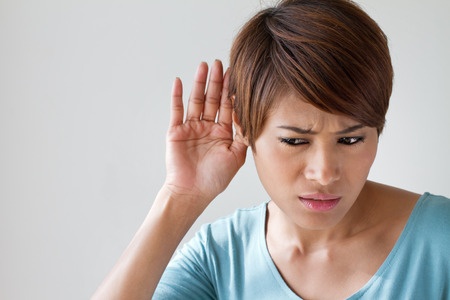The incidence of sudden sensorineural hearing loss is 1 per 5000 every year. This refers to nerve damage versus an ear infection with middle ear fluid. It is likely to strike adults in their 40s and 50s, although we have seen it in much younger and older individuals. Audiogram will usually reveal a 30 dB loss in 3 continuous frequencies that is sensorineural in nature. It is usually unexplained, although sometimes related to a viral upper respiratory tract infection, vascular disease, ototoxic drugs, brain tumor, autoimmune disease, or Meniere’s disease.
Ear exam is normal with no middle ear fluid or infection apparent. Patients typically wake up with this one morning or notice it over the day when they are trying to use the phone.
Sometimes patients may notice a loud pop before the hearing diminishes. Patients with sudden hearing loss may also become dizzy with tinnitus (ringing/roaring/chirping sounds). If this were to occur, one would suspect underlying Meniere’s disease as well.
Treatment should be initiated within the first week or two from onset of symptoms to improve prognosis. Early intervention is critical. Those with mild sudden hearing loss have a good prognosis. Moderate sudden hearing impairment patients require early treatment with oral steroids and/or steroid ear perfusions to improve the likelihood of recovery. Severe sudden hearing loss patients have a less favourable prognosis despite treatment. Additional workup may include lab tests, vestibular tests, and MRI brain based on clinical course.





